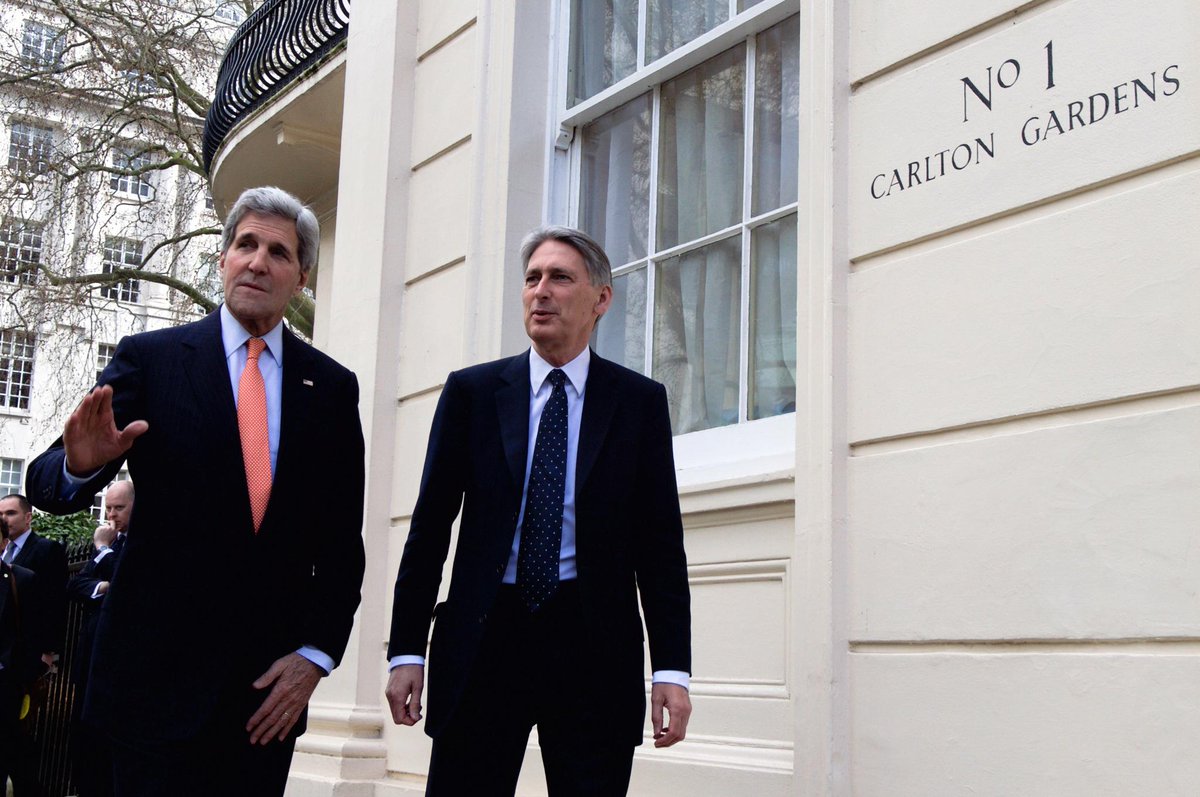The US response to the ceasfire is - more sanctions.
US, UK mulling more sanctions against Russia – Kerry
21
February, 2015
The
US and its allies are considering extra sanctions against Moscow over
the crisis in Eastern Ukraine. They have accused Russia of
undermining a “European-brokered” truce between Kiev and the
rebels, US Secretary of State John Kerry said.
The
Ukrainian issues are expected to dominate US-British talks, more
specifically what other allies they could potentially rally to force
Russia to follow western policies towards its historically closest
neighbor.
“Russia
has engaged in an absolutely brazen and cyclical process over these
last days,” declared John Kerry, who has arrived in London to hold
talks with his British counterpart, Foreign Secretary Philip Hammond.
“We
are talking about additional sanctions, about additional efforts, and
I'm confident over the next days people will make it clear that we
are not going to play this game ... and be part of this kind of
extraordinarily craven behavior,” Kerry said.
The
speaker of the Russian State Duma, Sergey Naryshkin hit out at the
US’s mooted move, saying that added sanctions were not in the
interests of large parts of the EU.
"Sham
solidarity in sanctions against Russia has little in common with
reality as it encroaches on the national interests of lots of
European countries and they are determined to fight for their
rights," Naryshkin said.
German
Chancellor Angela Merkel for her part said that sanctions were only
an option if a peace deal to end the hostilities in Ukraine failed,
and should not be seen as an end in themselves.
Immediately
after the ceasefire agreement came into force last Sunday, officials
in Kiev accused Russia of sending ‘more’ troops and armed
vehicles to Eastern Ukraine. Claims of the kind, however, have never
been confirmed throughout the conflict in Ukraine by international
observers: neither the OSCE inspectors on the scene, nor military
observers monitoring Russia’s regions bordering Ukraine.
French
President Francois Hollande on Friday could not confirm Russian tanks
were present in Ukraine.
"I
have no confirmation at this stage that Russian tanks have entered
Ukraine," he told journalists after meeting Angela Merkel.
The
Minsk agreement was negotiated in the Belarusian capital last week by
the leaders of France, Germany, Russia and Ukraine. It was endorsed
on Tuesday by a UN Security Council resolution. It states that Kiev
would gain control over the border between Russia and its dissenting
regions only after implementing far-reaching constitutional reform
and giving wide autonomy to those regions.
Following
the deal, the OSCE, Berlin, Paris, Kiev and Moscow agreed the truce
“in general” was working. One notable exception, however, is the
town of Debaltsevo in the Donetsk Region, which continued to be a
site of fighting between the rebels and regular troops.
Debaltsevo
had reportedly been a sticking point at the Minsk talks.
Anti-government forces said they had encircled 3,000 Ukrainian troops
in the region and had been calling on them for days to lay down their
arms and surrender, offering them a safety corridor. Kiev rejected
the very existence of the trap, insisting that Debalstevo supply
lines were intact and that the city would remain under their control.
Three
days ago Kiev announced its troops were retreating from the area.
Donetsk People’s Republic spokesman Denis Pushilin, however, said
the authorities’ claims that soldiers orderly marched out of the
area were not true.
“Most
of these formations, which Poroshenko referred to, were defeated by
the militia forces, and some of these units surrendered,” Pushilin
said.
Following
the retreat, President Petro Poroshenko proposed the UN and EU deploy
a peacekeeping mission in eastern Ukraine. The proposal did not find
much enthusiasm in the EU.
Moscow
was also critical of Poroshenko’s calls, saying Kiev is trying to
sideline the OSCE mission, which was tasked with monitoring the
implementation of the Minsk ceasefire agreement.
“I
think it’s a little bit disturbing, because they just signed the
Minsk agreements on February 12. And the Minsk agreements provide for
the role of the OSCE, There is nothing about the UN or European
Union,” Russia’s ambassador to the UN, Vitaly Churkin, told RT.
“So
for them to start talking immediately about something else… I think
instead of coming up with new ideas they should really work harder on
implementing what they agreed on,” Churkin added.
Despite
the progress on the Minsk deal, the Obama administration continues to
accuse Moscow of interfering in the Ukrainian conflict militarily,
though it has not put forward any reliable proof.
“There
is no question there have been a huge number of violations [of the
ceasefire],” the Secretary of State John Kerry said in London. “The
question is what is the status of where we think this is going from
here and what are the costs that should be imposed.”
President
Barack Obama is to make a decision "in the next few days."








No comments:
Post a Comment
Note: only a member of this blog may post a comment.